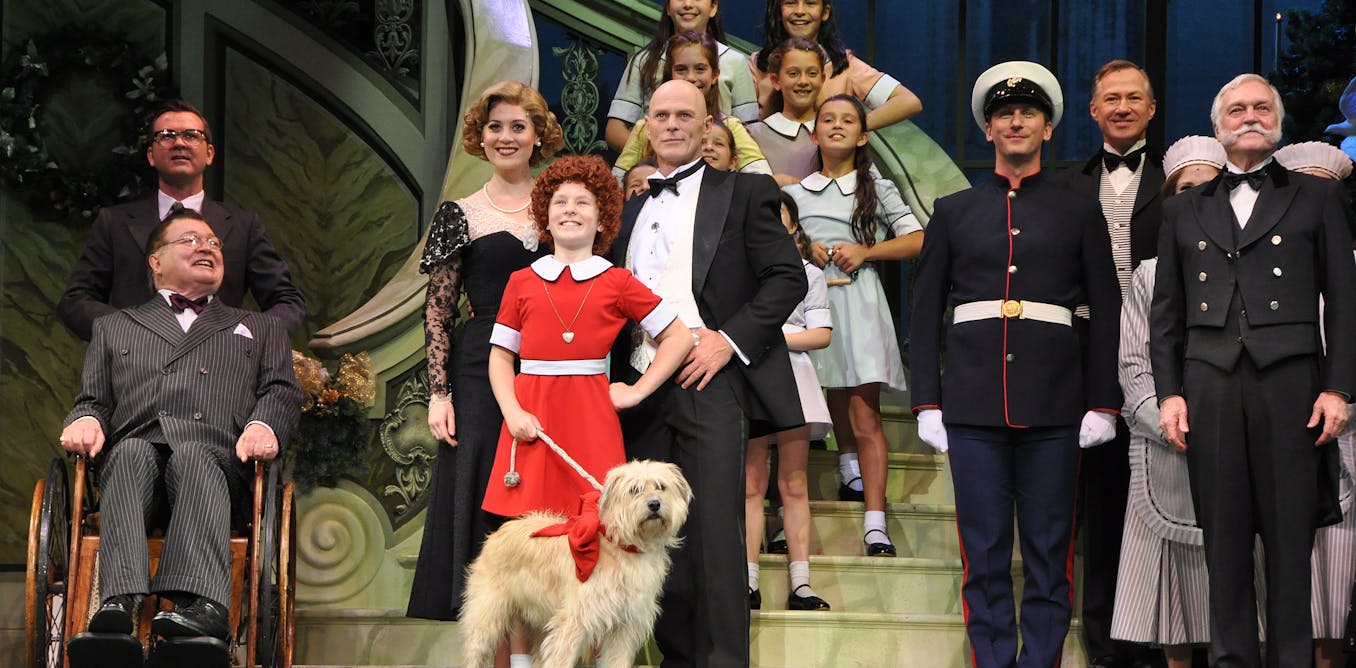
The sun will come out tomorrow: remembering the life and music of charles strouse
- Select a language for the TTS:
- UK English Female
- UK English Male
- US English Female
- US English Male
- Australian Female
- Australian Male
- Language selected: (auto detect) - EN
Play all audios:

The Broadway community is today mourning the passing of Charles Strouse at the age of 96, the legendary composer behind hits like Bye Bye Birdie (1960), Applause (1970) and Annie (1976).
Strouse was born on June 7 1928, in New York. His parents were Jewish immigrants, and his mother, who was musical herself, encouraged him to pursue composition. He graduated from the
prestigious Townsend Harris Hall Prep School, whose alumni included fellow composers Richard Rodgers, Frank Loesser, Ira Gershwin, and E. Y. Harburg. At just 15, he began studies in
composition at the Eastman School of Music, at the University of Rochester. In subsequent years he studied with both Aaron Copland, and then with Nadia Boulanger in Europe. While he had
intended to be a “serious” composer, he found work on Broadway as a rehearsal pianist. STROUSE GOES TO BROADWAY Strouse met the lyricist Lee Adams at a party in 1949, and for a decade they
wrote for various off-Broadway revues of little note. Their careers hit the big time with the 1960 smash Bye Bye Birdie, which established Strouse’s reputation as a Broadway composer. A film
adaptation was produced the following year, starring Ann-Margret and Dick Van Dyke. Strouse and Adams continued to produce musicals throughout the 1960s until arriving at their next big
hit: Applause, an adaptation of the Joseph L. Mankiewicz film All About Eve (1950), with leading lady Lauren Bacall. The production won the Tony Award for best musical in 1970, further
cementing Strouse’s reputation. In this period, Strouse also began to write for film and television. Notably, he composed the theme song for the CBS television sitcom All in the Family,
which ran for nine seasons. A MAJOR HIT, AND THEN THE REST His best-known work to contemporary audiences is the all-ages blockbuster hit Annie, written with the lyricist Martin Charnin. It
has had two subsequent Broadway revivals, has been performed all over the world and has received three film adaptations. In 1998, Jay-Z released Hard Knock Life (Ghetto Anthem) which Strouse
described as “the biggest selling record I ever had”. Throughout the 1980s Strouse partnered with many different lyricists. Not all of these works were successes. His collaboration with
Alan Jay Lerner, Dance A Little Closer (1983), closed after just a single performance. Rags (1986), with lyrics by Stephen Schwartz, has the honour of being the shortest-running show to be
nominated for Best Musical. It played four shows before closing. All up, his oeuvre spans 30 musicals. In 1998, he was inducted into the Songwriters Hall of Fame. In the course of his
career, he received three Tony Awards, two Grammys and an Emmy. STROUSE’S MUSIC Remarkably little has been written specifically about Strouse’s compositional style, which is peculiar given
the popularity and reach of his work. His music is extraordinarily varied – there is “no single recognizable Strouse style”, wrote Jenness and Velsey. Bye Bye Birdie is regarded by many as
the first Broadway show to integrate rock ‘n’ roll as part of its musical idiom: a coup for which he has not received sufficient recognition. Musical director and scholar Nathan Hurwitz has
observed that the quality and catchiness of Strouse’s melodies > belies the fact that there is a fierce intelligence underlying his > writing. Although his songs may at first appear
simple and > straightforward, they are carefully and professionally crafted. His melodies are satisfyingly singable. Annie’s Tomorrow, one of the songs he is best known for, was described
by lyricist Martin Charnin as having “instantly [wrapped] itself around the vocal chords of every singer in the country”. What sets the great Broadway composers apart is their profound
commitment to the marriage of music and words. Strouse epitomised this, describing > the words and music as a total concept, a complete and inevitable > part of the character’s
expression of the moment. We can see this in a song like You’ve Got Possibilities from the 1966 Harold Prince-directed It’s A Bird… It’s A Plane… It’s Superman. Composed by Strouse with
lyrics by Lee Adams, it is an exemplar of the Broadway style in that it is both musically satisfying and dramatically effective. Sydney, a secretary with a crush on Clark Kent, tries to
seduce him through song. The keen listener will notice that the key changes mirror the changes in her thought patterns as she moves through the song. LEGACY In his 2008 memoir, Strouse
recounted how he was rarely recognised in public. At a meeting with Columbia Pictures – a studio which had just paid the largest ever amount of money for motion picture rights to a property
for Bye Bye Birdie – president Abe Schneider wondered out loud (after some time had passed) whether they should wait for the composer before commencing the meeting. Embarrassed Strouse was
forced to reveal he had been sitting right there the whole time. Though his later works may not have achieved the same commercial success as his earlier hits, Strouse continued composing
well into his later years. Strouse was married to director and choreographer Barbara Siman until her death in 2023. He is survived by their four children, and eight grandchildren.
